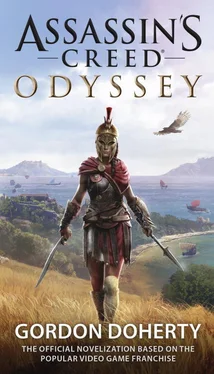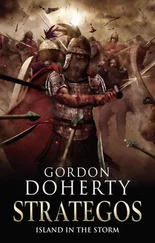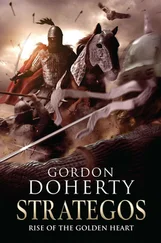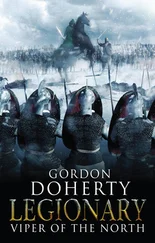“A trap?”
“It seems so. But Brasidas sprung the gambit before it could snap shut. All through the summer, he and his men have battled to hold on to the island: ships groaning and circling to block the narrow bays, skirmishes on the island and on the coast of Pylos, fraught truces and talks which dissolved—every time—into angry exchanges and then battle again. The island runs red with blood. Brasidas is trapped there, but with his purebred regiment, he will not easily be beaten. Yet word has spread that Kleon has sent Athenian reinforcements to crush the Spartan brigade and secure the island. Kassandra…”
Kassandra saw something in her mother’s eyes and knew what she was about to say. “Deimos sails with the reinforcements.”
Myrrine nodded and buried her head in Kassandra’s chest. They held each other like that for a time, the sun setting, the peace over. She heard the soldiers’ frantic calls now. They were sending out the dye skiffs to find and summon the few galleys of the scant Spartan navy back to this dock. The ephors had refused to send another precious lochos in support of Brasidas, lest their homeland be left scantily protected. A band of Tegean allies was being summoned instead. One thousand men who might save the Spartan regiment trapped on the island.
Myrrine drew her head up and shook Kassandra. “I know what you’re thinking. I know there is no stopping you. If Deimos sails in support of Athens, then the Cult wants Athens to win, to slaughter the Spartans on Sphakteria. We cannot let it happen. Go, do as you must. I ask you only this: bring my boy back to me.”
• • •
Duplicitous warfare was not the Spartan way. Nor was it the way of any soldier in Hellas. But the great war had twisted the ancient rules of engagement. No longer did phalanx line up against phalanx in an honorable slash of steel. This was a new age of devious sieges—tunnels under city walls and countermines to ruin those tunnels and suffocate the diggers—of mighty contraptions like the great flamethrower, of deception, of lies, of desperation. Oaths lost their meaning and became tools of duplicity. All Hellas became a writhing bed of red-eyed beasts. And so it was on the isle of Sphakteria.
Stiff bodies of Spartan, Helot and Athenian lay twisted and unburied on the soil. The men of Brasidas’s Spartan lochos were like lions, whittled down day by day but never beaten, while Athenian galleys rocked up to the shores every moon, packed with fresh troops. Only in the last days of summer—when Brasidas and his men had been pushed into the island’s narrow northern peninsula—did the first relief boats from Sparta arrive. Ten triremes, brimming with Tegeans. The Adrestia sailed at their head.
It was night when they came, a sultry and stinking wind coming from the direction of the island. Kassandra crouched on the prow, Ikaros on her shoulder, both scouring the thickly wooded isle and the odd glow along its long spine. “Why does the island shine? There is no village there—just an old Spartan fort.”
Barnabas’s face lengthened. “Alas, Misthios, I fear the Athenians have learned much from their defeat at Boeotia.”
Kassandra blinked to moisten her dry eyes and saw it now: the glow was in fact an angry blaze. The pine and olive woods crackled and thundered with orange flame. The closer they drew, the more she saw: fire arrows streaked through the night sky like phoenix feathers. The missiles whistled and hissed, endless, countless, shooting from the isle’s northern shores and raining down on the small area inland—already ablaze. There were flame pipes too, breathing great clouds of orange.
“It is like the Gates of Hades,” Barnabas whispered.
She heard the distant and forlorn wail of the Spartan pipes, and recognized the tune—a call for a last stand, just as she had heard in that vision at the Hot Gates.
“We must be swift,” Kassandra urged the crew.
“We can’t approach directly,” Barnabas said. “The shores are awash with Kleon’s men. But we can draw close. Hold tight, Misthios.”
As he stalked away, Kassandra grappled a rope and braced. The Adrestia cut close to the island’s waist then sped north, parallel to the shoreline—dangerously close to the shallows, but using the overhanging cliffs as a screen from the Athenian-held coastal areas. The galley sped through a natural arch of rock and then the bluffs peeled away to reveal the Athenian efforts on one bay: a few hundred archers and a phalanx of some five hundred hoplites were stationed here. Only a fraction of the Athenian force was spread around the northern shores.
The Adrestia crunched onto the shingle bay just as the Athenians beached there noticed her presence, the other nine galleys coming to land alongside. “Take the shore!” Kassandra howled, leaping down onto the bay.
The Athenian taxiarchos jolted, seeing the landing enemy. He bawled at his men, who turned their blazing arrows around and upon the relief flotilla. A storm of blazing shafts spat forth. Kassandra threw up her shield as she moved, the Tegeans clattering into place beside her. They were brave and loyal, she knew, but there was something missing—they were no Spartiates. The aura of invincibility she had felt when she had fought alongside Stentor’s men was absent. It was down to her to inspire them.
The arrows whacked and spat down all around them. Tegeans slid away, shaking and clutching at the throat-piercing missiles. One ran, ablaze like a human torch, back into the shallows. The one beside her took a shaft in the eye and dropped like a sack of wet sand.
“Level spears!” she thundered, an arrow zinging from her helm. “Walk, in time.”
She felt the Tegeans draw courage from her steady, strong orders. They marched with her in a rapid lockstep. The Athenians stood their ground for a time. Then she saw one backstep. A moment later, the archers began to melt into the trees, knowing they could not hope to face Kassandra and the newly landed hoplites. Now just the five hundred Athenian spearmen faced the Tegean thousand. “Advance!” the taxiarchos bawled.
They closed the distance in moments, and the two forces met with a clatter of spears and shields, joining the chaos of screaming from inland and all along the shore. Kassandra prodded her spear into the shoulder of one man, driving him to his knees, pulling the lance clear then using it to shove another’s shield away. “Finish him!” she screamed at the Tegean by her side, who duly thrust his lance into the Athenian hoplite’s belly. The enemy fell in droves, and Kassandra felt their corpses grind under her feet as she led the push, driving them back into the woods. After a time, the Athenians broke out in a panic, more than half of them dead, the remnant fleeing. It was like great doors opening before her—or the Gates of Hades—as the way into the burning woods presented itself. She cried at her Tegeans, urging them uphill through tangled undergrowth and pitted ground. She saw silhouettes leaping and spinning through the trees in that fiery chaos, sparks blowing like rain. Spartans fought like wolves, some with their hair burned away, others with seared skin. One man fought with half his face a mess of blisters and weeping fire wounds. The Athenians who had pushed inland surrounded them like jackals—the numbers impossible. But when Kassandra saw Brasidas, just uphill, she knew she could not give up. The Spartan general spun on his heel to run an Athenian champion through, then he took the head of another with a deft flick of his spear, before ramming the lance hard into the belly of a third.
“Misthios!” he yelled, spotting her, his face black with blood, his grin wild, eyes wide.
“Hold your ground,” she yelled up at him. “We’ll clear a path back to shore for y—”
Читать дальше












